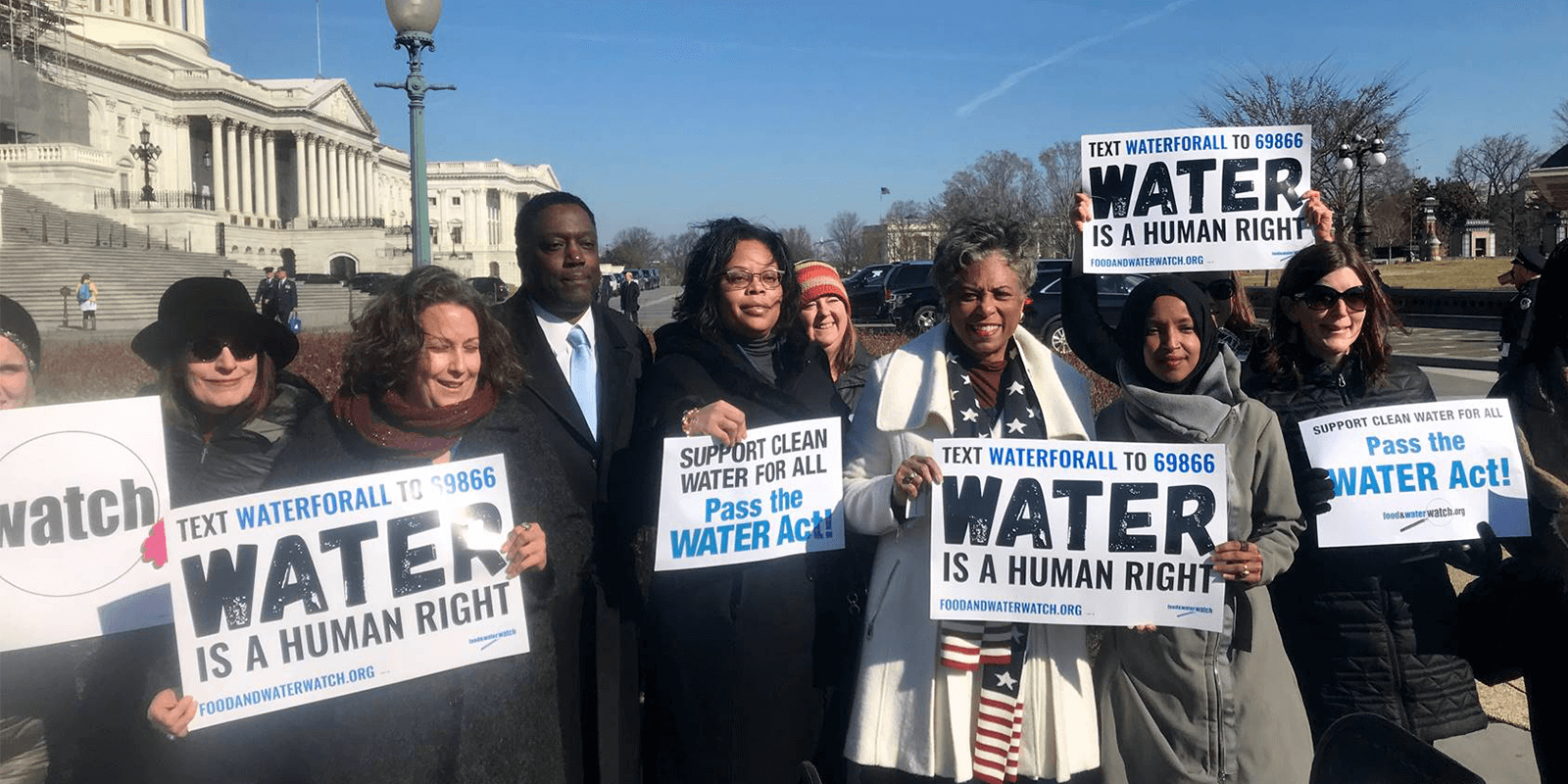Making sure every American has access to clean and safe drinking water should be a top priority for Congress. But Congress hasn’t invested enough in water infrastructure and some lawmakers make matters worse by supporting dangerous ideas like privatizing drinking-water systems.
AFSCME District Council 20 Vice President Seth Couslar wants to change that.
He went to Capitol Hill last week to urge Congress to take quick action to invest in and improve water infrastructure. Specifically, he urged Congress to pass the Water Affordability, Transparency, Equity and Reliability (WATER) Act of 2019 (H.R. 1417). Sponsored by Michigan Rep. Brenda Lawrence and California Rep. Ro Khanna, the bill incorporates key elements of AFSCME’s infrastructure agenda.
“When you turn on your tap at home or when your child takes a drink from the fountain at school, you should not have to worry that the water you consume could contain poisonous toxins or lead,” Couslar said in a statement. “Yet, for too many communities across the country, clean drinking water is out of reach because of a lack of investment in infrastructure, harmful austerity measures and privatization schemes that have caused irreparable damage to already disenfranchised communities.”
He also spoke up for AFSCME members who protect our nation’s water resources.
“As a public service worker and citizen, I want my government to show the same devotion to caring for our communities’ water treatment specialists, engineers and other professionals who work tirelessly to provide this fundamental human right,” he said.
Federal investments to ensure clean drinking water and the safe disposal of waste water have been steadily dwindling over time. This has worsened problems throughout the country, culminating in crises in communities like Flint, Michigan.
AFSCME has long been a champion of infrastructure bills that invest in public services and keep water, sewer, transportation and other systems in public hands. To learn more, about our union’s infrastructure agenda, go here, here and here.
The WATER Act would:
- Provide $35 billion to fully fund the Drinking Water and Clean Water State Revolving Funds program;
- Enable public schools to test and replace drinking water infrastructure
- Provide grants to replace lead service lines serving households
- Pay for projects to eliminate chemical water contamination.
- Increase funding for the School Drinking Water Grant Program
